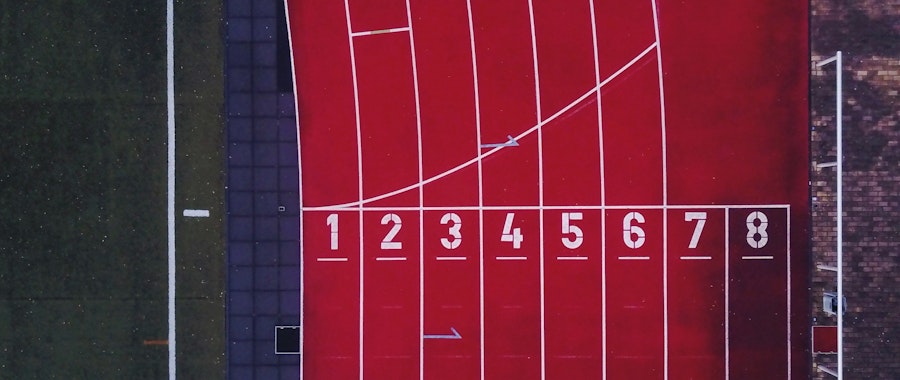
Are you really prepared to work? 4 tips from pro athletes
Elite sports are a powerful metaphor for business, and there are some striking parallels between the two worlds. Business situations have been compared to sports metaphors time and time again. The fierce competition, achieving goals and targets, strategy and tactics, hard work, perseverance, determination, teamwork, dealing with success and recovering from failure and setbacks–those are all key challenges in both worlds. So what can elite athletes teach us about approaching work?
Elite athletes and sports psychologists stress the importance of mental preparation to making gains in performance—and achieving excellence. As the great baseball coach Yogi Berra put it, “baseball is ninety percent mental. The other half is physical.” Just as with athletes, all the skill, talent, and drive in the world won’t translate into success without a positive mindset and psychological strategies. The right mental preparation can help you take high-pressure situations in stride, feel more focused and confident, and work more efficiently.
So how can you translate the practices that athletes use to greater productivity in your 9-5 life? Here are four expert tips to get your head in the game:
1. Imagine success
Visualisation is a powerful tool. So powerful that merely imagining a workout can actually increase muscle strength—though not, sadly, as much as actually going to the gym. That’s why top athletes use visualisation to mentally prepare for competition. Surfers Kelly Slater and Mick Fanning have meticulous pre-heat routines to help them focus in on the job at hand, while tennis players including Rafael Nadal and Serena Williams have employed successful pre (and in) game rituals.
You can use the same principle to prepare yourself for a big presentation, refine your elevator pitch, or step towards a major goal. Psychologists say the key is to use all your senses and create a very real picture: imagine your surroundings in great detail, rehearse your responses to potential client questions, smell the chai latte in your cup, feel your confident-yet-relaxed posture. Visualisation is also useful as a daily practice. Take five minutes before you leave the house to imagine a focused, calm, productive day—or whatever represents your own personal vision of success.
2. Create a pre-performance routine
Many successful athletes have pre-game rituals. Australian cricket captain, Steve Smith tapes his shoelaces to his socks, while Australian golf legend Jason Day walks himself through a staggering 15-step routine before every golf shot he takes. And while rituals like these may be more superstition than science, having a daily morning routine can help get you into the zone—and prep your brain to be more focused and productive throughout the day.
Many productivity gurus recommend against diving into email or voicemail first thing, because it puts us into a reactive mode, one that focuses on other people’s priorities. Instead, take 10 minutes to plan your day, create a realistic list of goals, and break complex tasks into concrete actions. And, for greater efficiency, tackle the hard stuff first. Like a rugby scrum, your day gets a whole lot easier with a bit of momentum.
3. Connect to what motivates you
Motivation is what keeps athletes — and the rest of us — going in the face of pain, boredom, setbacks, and self-doubt. Psychologists distinguish between internal motivation — your internal goals, like pride in a job well done, or the desire to improve — and external motivation, which includes things like praise and recognition from others and tangible rewards.
The more you know about your own personal motivations, the easier it is to put the hard parts of work into perspective and help you see a boulder of a task as just a stepping stone to a larger purpose. Australian employees ranked life balance as their most important aspect in leading to job satisfaction, trumping security, pay and hours worked. So make a list of the positive aspects of your job that link to your personal goals. What new, transferable skills are you learning? What kinds of rewards does it offer? How is your work helping you to achieve your longer-term goals?
And if the answers don’t seem satisfactory, you might consider the advice of Steve Jobs. In his 2005 commencement address at Stanford University, he said, “For the past 33 years, I have looked in the mirror every morning and asked myself: ‘If today were the last day of my life, would I want to do what I am about to do today?’ And whenever the answer has been ‘no’ for too many days in a row, I know I need to change something.”
4. Add meditation to the mix
Professional athletes might seem like the least likely among us to sit quietly and watch their breath. Yet coaches and players, whole teams, and various sporting bodies across the nation are introducing mindfulness, meditation, yoga and personal development to training. Swimming Australia has introduced programs for their athletes in the lead up to Tokyo 2020, while various current and former high profile AFL players are adopting a similar mentality. While your job likely doesn’t involve swimming laps or kicking goals, meditation can help you improve focus, boost productivity, and reduce stress.
Will these tips garner you the millions that elite athletes command? Probably not. But they can help you to focus on your own career with more intention and purpose—and let you take advantage of the brain science and psychological research that’s helping athletes get to the top of their games.


